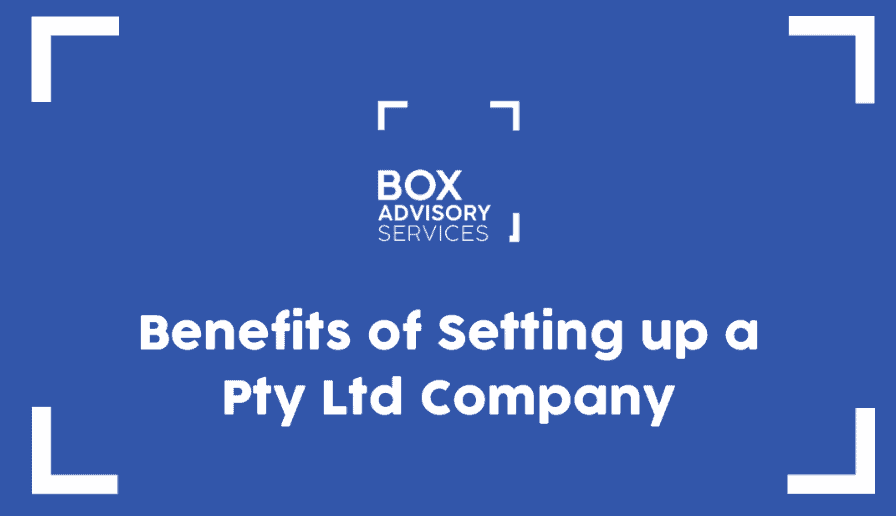
BY
|
Accessing the ATO as a Company
Starting a business is an exciting journey filled with lucrative opportunities, growth, and the chance to pursue your passion. One of the most common ways to open a business is under a company structure, which provides a range of unique benefits, such as limited liability and the ability to raise capital.
However, with this structure comes a range of compliance and tax obligations that can often prove overwhelming, especially if you are new to them.
But don’t let that worry you! It’s not as frightening as it sounds.
The Australian Taxation Office (ATO) has many tools and online services for business owners to help manage their obligations, making the process far less daunting.
This guide provides an overview of what you need to know when starting a company and how to access the ATO’s online services and support to help you stay compliant and up-to-date on your tax obligations.
What is a Company Structure?
A company structure refers to a business entity that is a separate legal entity from its shareholders. This means the shareholders aren’t personally liable for the company’s debts and obligations. Instead, the company is responsible for its own actions and liabilities.
A company can also be publicly traded or privately held with one or multiple shareholders.
The company’s management is typically run by a board of directors, who the shareholders elect, while the company’s executive officers oversee the day-to-day operations.
The company structure offers various benefits, such as:
- limited liability
- the ability to raise capital
- continuity of business
But it also comes with numerous obligations, such as compliance with the Corporations Act 2001 and the need to lodge annual tax returns and other reports with the ATO and Australian Securities and Investments Commission (ASIC).
For more information regarding this business structure’s advantages and potential pitfalls, check out our guide to The Most Common Types of Business Structures in Australia.

What are a Company’s Tax Obligations?
As a company in Australia, you have a range of tax obligations that you must meet to stay compliant with the Australian Taxation Office (ATO). These include:
- Goods and Services Tax (GST): You must register for GST if your annual turnover is $75,000 or more, which is when you will start to charge GST on your sales. You must also report a Business Activity Statement (BAS) and pay GST to the ATO quarterly.
- Pay As You Go (PAYG) withholding: If your company employs staff, you must withhold tax from their wages and pay it to the ATO regularly. This includes withholding tax on salaries, wages, bonuses, and commission payments.
- Payroll tax: As a state-based tax, the local government in which your business operates will determine your payroll tax obligations. For example, a payroll tax threshold of $1.2 million and a 5.4% tax rate applies in New South Wales. So, if your business operates in NSW and your wages exceed the threshold amount, you’ll have to pay tax on every dollar earned over $1.2 million.
- Fringe Benefits Tax: You must pay Fringe Benefits Tax (FBT) on certain employee benefits, such as company cars, parking spaces and other non-cash benefits. You must lodge an FBT return annually with the ATO.
You should stay informed and seek advice from a tax professional if you need clarification of your company’s tax obligations.
You might also be interested in our guide on The Main Types of Taxes in Australia that Businesses Have to Pay?
What is the ATO Business Online Services?
The ATO’s Online Services for Businesses is one of the new government services that has replaced the original Business Portal. It offers the same support features as the Business Portal and provides additional useful functions. For example, users can create payment plans, lodge a BAS, obtain copies of income tax returns, view their communication history with the ATO, and access all businesses they manage in one place.
Business owners can also use the online portal for most interactions with the ATO, including:
- Viewing, preparing, lodging and revising activity statements
- Creating payment plans
- Managing accounts and updating tax registration details
- Viewing Single Touch Payroll reports
- Registering for GST and PAYG withholding
- Requesting stapled super fund details
- Preparing and lodging Auditor contravention reports,
- Accessing secure mail subjects
- Accessing the Small Business Superannuation Clearing House
And if you run more than one business, you can manage each from the same dashboard – simply switch your ABN.

Accessing the ATO Online Services for Your Business
To access the ATO online services for your business, you must sign in to myGovID (a different platform from your MyGov account), the Australian Government’s digital identity app. If you don’t currently have a myGovID, you must register for one and link it to your business in the Relationship Authorisation Manager (RAM). RAM is an authorisation service that allows you to act online on behalf of a business when linked with your myGovID.
Once you have a myGovID and link it to your RAM business, you are ready to go. If you would like more information on how to register, the ATO has a three-step process that you can follow.
The ATO also has various resources on how to navigate the online service portal:
- General Online services for business functions
- Accounts and payments
- Lodgments
- Employees
- Profile
- Communication.
Why Hiring an Accountant is Still a Good Idea
Despite the resources provided by the ATO, hiring an accountant can still be beneficial. An accountant can offer valuable expertise and knowledge when it comes to navigating the complicated world of business finances and tax compliance. They can also provide guidance and assist in achieving your business goals.
More specifically, an accountant can help you with the following:
- Tax compliance and planning: they can assist in understanding and complying with complex tax laws and regulations that apply to your business. Additionally, they can help to make sure that the right amount of tax is paid and that all eligible deductions and concessions are taken advantage of.
- Financial management: An accountant can guide you to manage your finances more effectively, advising you on improving your cash flow, reducing your operational costs, and increasing your profit margins. They can also assist you with budgeting, forecasting, and financial planning, which can be essential for long-term business success.
- Decision-making: Through their expert analysis, an accountant can be especially valuable when considering expanding your business, taking on new employees, or making other significant investments.
- Legal compliance: Your accountant will help you understand and comply with the legal requirements that come with running a business, such as filing annual reports, registering for taxes, and keeping accurate financial records.
- Time-saving: By handling most financial and tax-related tasks, an accountant will save you time and energy that you can use to focus on other essential aspects of your business.

How Can Box Advisory Services Help?
Box Advisory Services allows businesses to simplify and streamline how they manage their tax affairs and business accounting. Our experienced and knowledgeable consultants provide comprehensive advice on improving cash flow, reducing taxes, and ensuring compliance with relevant laws and regulations.
You can transform your operations into a successful and profitable venture through customised solutions tailored to each business’s individual needs. We’ll also guide you on your day-to-day financial management, such as payroll processing, bookkeeping services and more.
With the combination of personalised service and expert advice, Box Advisory Services is the perfect ally for small business owners in Australia who want to set themselves up for success.
If you want to learn more, schedule a FREE initial consultation today.
Key Takeaways
Navigating the business world can be a complicated and intimidating process, especially for small business owners just starting out. Luckily, the ATO provides valuable resources that make getting your business affairs sorted much easier.
Their online services portal is full of great information on navigating GST regulations, staying up to date with payroll taxes, and other crucial aspects of setting up a successful business. But, even with these resources available at their fingertips, it’s still wise to consult a professional accountant before setting up or running a successful business.
An experienced accountant can provide valuable advice on how best to structure your set-up for success long-term, which could be crucial for the future growth of your important enterprise.
Let Box Advisory Services help you succeed today.



